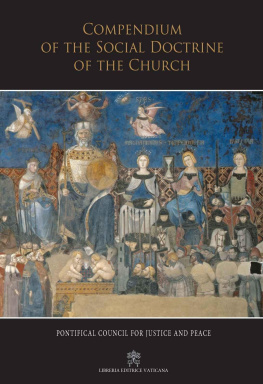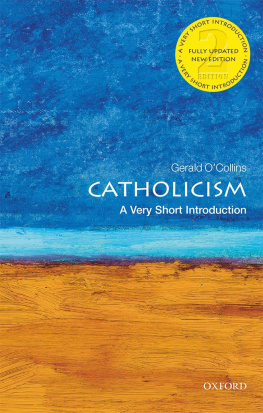Also available from Sophia Institute Press by Dom Hubert van Zeller:
Holiness for Housewives (and Other Working Women)

A Guide for Beginners
Formerly entitled: Sanctity in Other Words





...... 3
........ 11
....... 19
...... 27
...... 35
...... 43
....... 83
....... 93
Editor's Note: The biblical references in the following pages are based on the Douay-Rheims edition of the Old and New Testaments. Quotations from the Psalms and some of the historical books of the Bible have been cross-referenced with the differing names and enumeration in the Revised Standard Version, using the following symbol: (RSV =).
A Guide for Beginners
What Holiness Is and Is Not
 f personal holiness is thought of as being a name at the top of a list, it is understood wrong. If it is thought of as something that merits a feast in the Church's calendar, it is understood wrong. If it is thought of as something to which is attached the power of working miracles, it is understood wrong. If it is thought of as mooning about in a state of pious contentment (or sweet ecstasy or noble and aloof virtue), it is understood wrong. There is nothing "superior" - in the sense of being one up on everybody else - about it.
f personal holiness is thought of as being a name at the top of a list, it is understood wrong. If it is thought of as something that merits a feast in the Church's calendar, it is understood wrong. If it is thought of as something to which is attached the power of working miracles, it is understood wrong. If it is thought of as mooning about in a state of pious contentment (or sweet ecstasy or noble and aloof virtue), it is understood wrong. There is nothing "superior" - in the sense of being one up on everybody else - about it.
The way to think of sanctity is as something that, by being generous and faithful to grace, gives back to God the love He has given to the soul. So it is for God's sake, more than for our own, that we should want to be saints. We work away at holiness not because we are ambitious, and want to be experts in a particular kind of lofty career, but because God wants us to be saints and is praised by our striving after sanctity.
Anyone can be holy, or rather act holy, so long as others are saying, "There's a saint for you," but sooner or later this sort of holiness wears off. Either the person sees the trap, becomes humble, and goes ahead toward real holiness, or keeping up the act becomes too much of a strain and there's a swing toward worldliness and perhaps to a lasting unholiness. The whole secret of sanctity is that it is a thing of grace, and so cannot be switched on as a part to be played.
This means that however determined you are to be a saint, you will not become one if you rely on your own strength of mind. The only thing that can get you to sanctity is God's grace. You will need all the strength of mind you have just to work together with God's grace, but if you imagine that making good, strong resolutions will carry you the whole way, you are wrong. About the first thing to happen will be that God lets you break some of those good, strong resolutions before you get properly started. This will be to put you in your place, and show you that you can do nothing without Him.
Once you are decently humbled, knowing that left to yourself you cannot even carry out the things that you very much want to carry out, you are getting ready to be used. You are being softened up like a steak. When all the toughness and pride and glamorized ideas of holiness have been beaten out of you by the down-to-earth action of truth, then God has got something there on which He can work. Without false notions and fancy plans, you can now begin to fall in with the true notions of holiness and with the plan God has in mind for you.
It stands to reason. God is not going to reward anyone else's work but His own. You cannot expect Him to recognize a holiness that He has done nothing to bring about. When you get right down to it, there is only one real goodness, one perfection, one sanctity, and that is God's. When man invents a holiness of his own, God lets him look for it but does not help him find it, because a holiness of one's own does not exist, and it is a waste of time searching for it. It is as if someone were to look for moonlight without the moon. Once you admit that all moonlight is bound to come from one particular place, and that it is a thing you cannot make yourself, you have learned something.
Another thing to notice right at the beginning about holiness is that there is no cut-and-dried pattern about it. It is what God wants out of you, and because you are not exactly the same as anyone else, the holiness that is to be yours will not be exactly like anyone else's. The model of all holiness is our Lord, and unless you grow to be like Him, you will never get anywhere in holiness, but this does not mean that all who follow Him will end up exactly alike. Our Lord appeals to us in His way, and we answer Him in our way.
wants something out of you that is your own to give and is not just a copy. The saints produce masterpieces because of each one's likeness to our Lord, not because of each one's likeness to another. By all means, let us imitate the way in which the saints went about it, but by no means let us copy the results. God wants an original reproduction of Himself, not a forgery.
So it is not that the saints do particularly "saintly" things (like fierce penances, whole nights spent on their knees, miracles, prophecies, or raptures in prayer); it is more that they do all things in a particularly saintly way, in exactly the way that they feel God wants. To them the only thing in the world that matters is God's will. They know that by doing God's will as perfectly as they can, they are imitating our Lord, they are expressing charity, and they are being true to the best that is in them.
All this should be a great encouragement to us because it shows that our service of God does not depend upon how we feel about it, but upon how God looks at it; not upon acts that are seen to be heroic, but upon how ready we are to let God draw heroism out of us; not upon battling our way to a certain point that will give us the title of "saint," but upon following blindly the course that is set by God's will.
What Holiness Does























 f personal holiness is thought of as being a name at the top of a list, it is understood wrong. If it is thought of as something that merits a feast in the Church's calendar, it is understood wrong. If it is thought of as something to which is attached the power of working miracles, it is understood wrong. If it is thought of as mooning about in a state of pious contentment (or sweet ecstasy or noble and aloof virtue), it is understood wrong. There is nothing "superior" - in the sense of being one up on everybody else - about it.
f personal holiness is thought of as being a name at the top of a list, it is understood wrong. If it is thought of as something that merits a feast in the Church's calendar, it is understood wrong. If it is thought of as something to which is attached the power of working miracles, it is understood wrong. If it is thought of as mooning about in a state of pious contentment (or sweet ecstasy or noble and aloof virtue), it is understood wrong. There is nothing "superior" - in the sense of being one up on everybody else - about it.